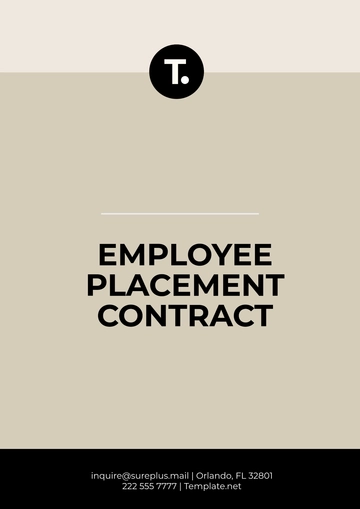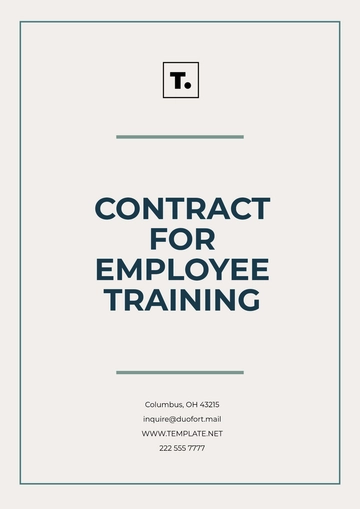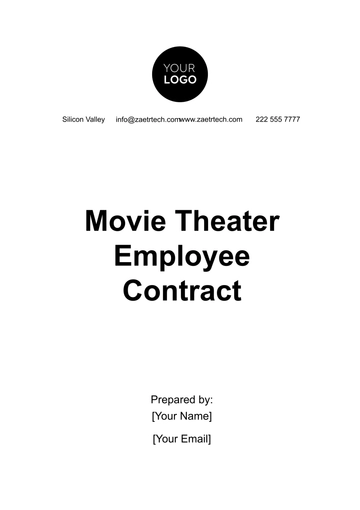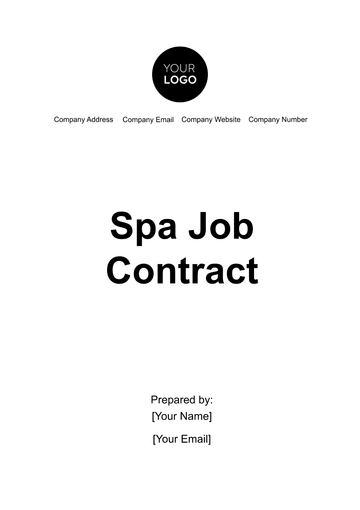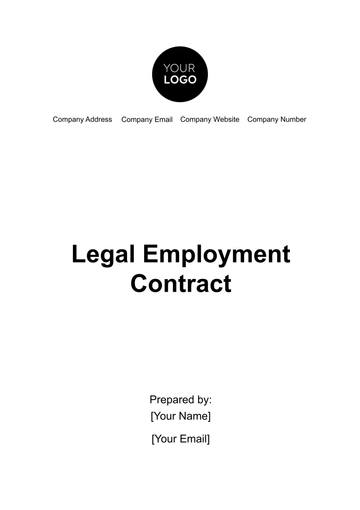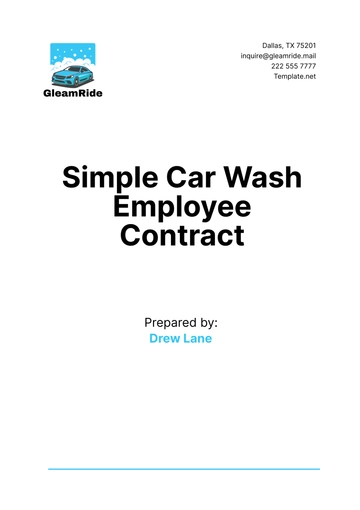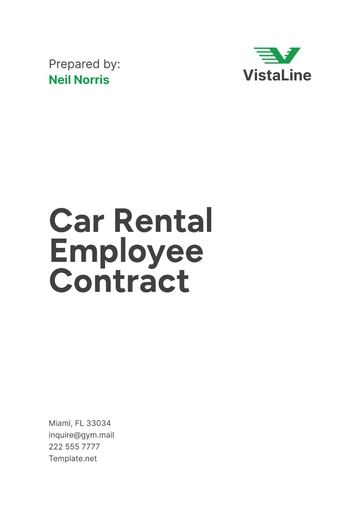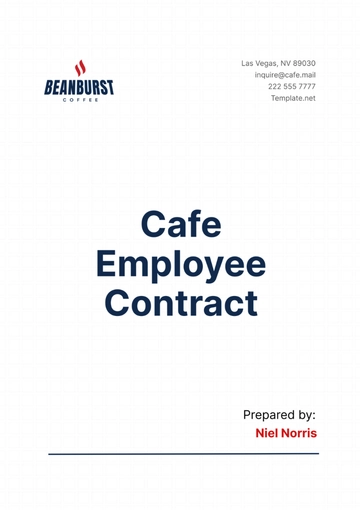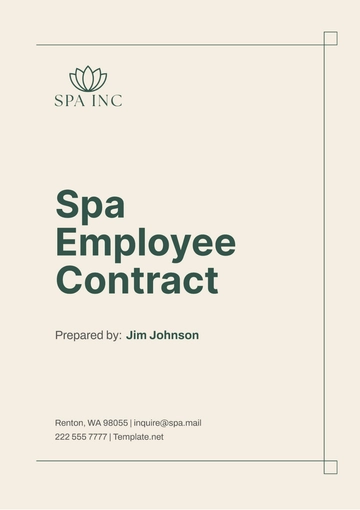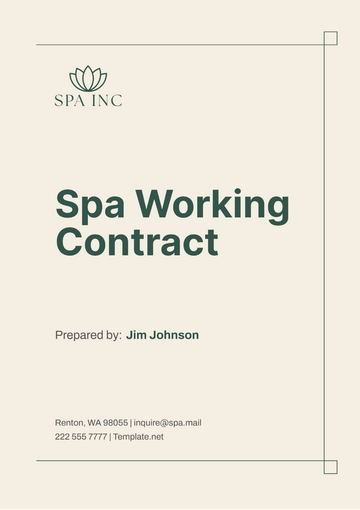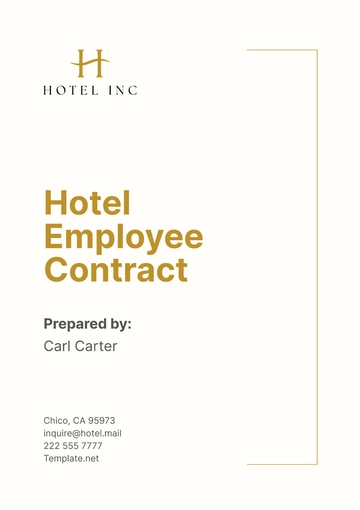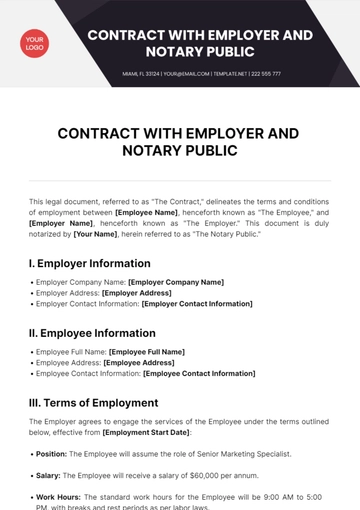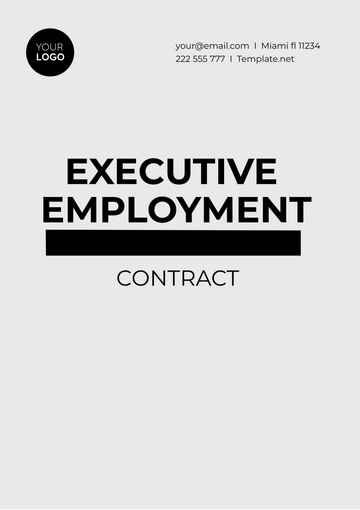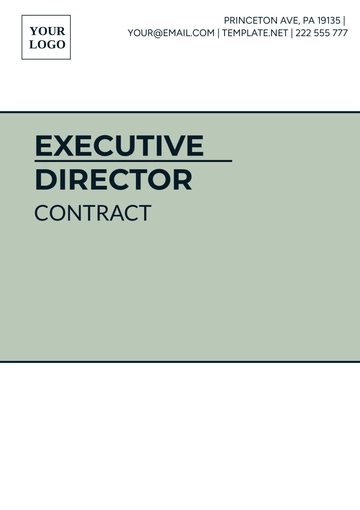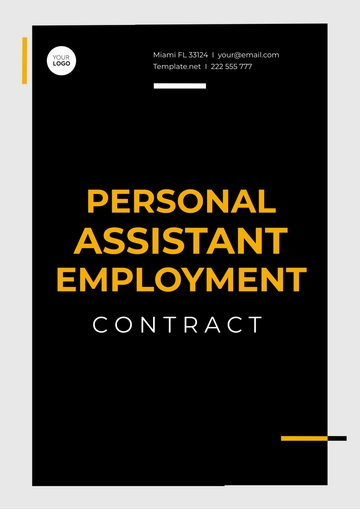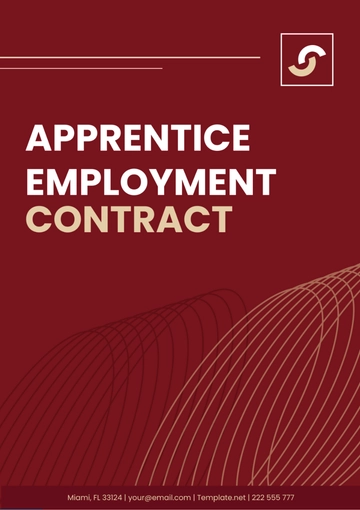Free Car Rental Employee Contract
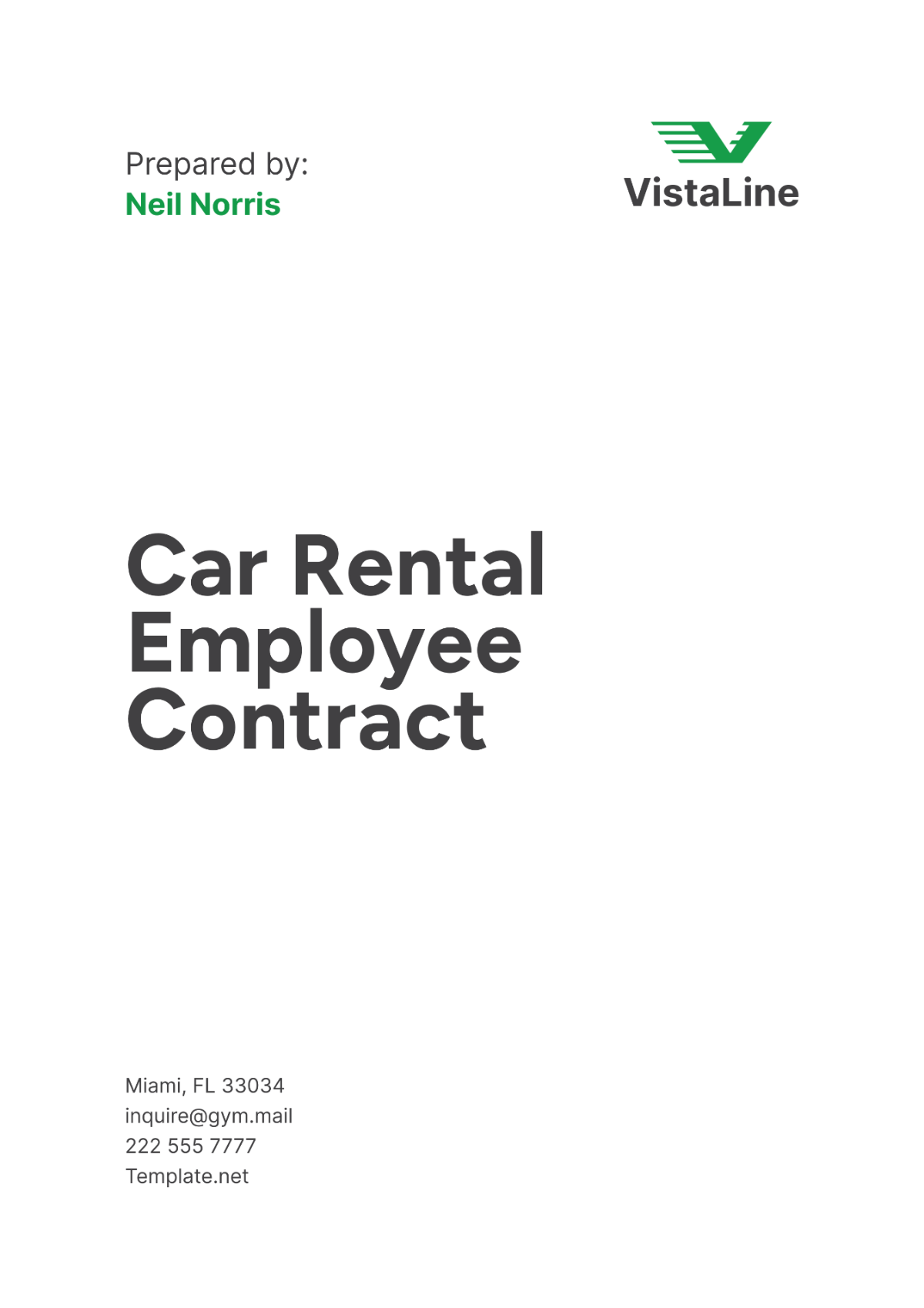
I. The Parties
This Car Rental Employee Contract ("Contract") is made and entered into on [Month Day, Year] ("Effective Date") by and between [Your Company Name] hereinafter referred to as the ("Employer") with a primary place of business at [Your Company Address] and [Employee's Name] hereinafter referred to as the ("Employee") residing at [Employee's Address] collectively referred to as the ("Parties").
WHEREAS, the Employer is in the business of car rental services and seeks to employ the Employee;
WHEREAS, the Employee desires to be employed by the Employer in the capacity of [Sales Representative];
WHEREAS, the Parties wish to set forth the terms and conditions of the Employee's employment;
NOW THEREFORE, in consideration of the mutual covenants and promises herein contained, the Parties agree as follows:
II. Employment Duties
A. Job Title
Designation: The Employee shall serve as a [Sales Representative], a role that involves significant customer interaction and sales responsibilities.
Primary Function: This position focuses on promoting and facilitating car rentals to meet the company’s sales objectives.
Role Adaptability: The Employee may be required to adapt to additional duties as directed by the Employer to support business needs.
B. Responsibilities
Customer Interaction: Managing customer inquiries and processing rental agreements promptly and accurately. This involves addressing customer questions, processing transactions, and ensuring all documentation is complete.
Customer Service Excellence: Providing excellent customer service to ensure customer satisfaction and retention. The Employee must handle complaints effectively and strive to exceed customer expectations.
Product Knowledge: Maintaining an up-to-date knowledge of company car rental fleet, pricing, and promotions. This includes familiarizing oneself with new vehicles and understanding current marketing strategies.
Marketing Support: Assisting in marketing and promotional activities as directed by management. This can include distributing promotional materials and participating in customer outreach events.
Sales Reporting: The Employee must accurately report daily sales and rental activities to management. These reports help in tracking performance and identifying areas for improvement.
C. Reporting
Direct Reporting: The Employee shall report directly to the Sales Manager. Regular communication with the Sales Manager ensures alignment with company goals.
Weekly Updates: The Employee is required to provide weekly performance updates to the Sales Manager. These updates include sales figures, customer feedback, and any operational issues.
Issue Escalation: In case of any issues or emergencies, the Employee must immediately communicate with the Sales Manager. Prompt reporting of issues ensures quick resolution and minimizes disruptions.
III. Compensation
A. Salary
Annual Compensation: The Employer agrees to pay the Employee an annual salary of [$40,000]. This salary reflects the Employee’s responsibilities and experience.
Payment Schedule: It is payable in bi-weekly installments of [$1,538.46]. This regular payment schedule helps in budgeting and financial planning.
Review Periods: Salary reviews will occur annually to assess performance and potential increases. These reviews are based on the Employee’s contribution to the company’s success.
B. Commission
Base Commission: In addition to the base salary, the Employee shall be eligible for a commission structure as follows: [5]% commission on all sales generated by the Employee. This commission incentivizes high performance and sales generation.
Target Achievement: [10]% commission for sales exceeding monthly targets as set by the Employer. Exceeding targets demonstrates exceptional performance and is rewarded accordingly.
Quarterly Bonuses: Quarterly performance bonuses based on overall sales and customer feedback. These bonuses recognize and reward consistent high performance and positive customer interactions.
Year-End Bonuses: Additional year-end bonuses may be awarded based on company performance. This bonus reflects the company’s appreciation for the Employee’s contributions throughout the year.
C. Benefits
Health Insurance: The Employee shall be entitled to health insurance coverage after a [90]-day probationary period. This benefit ensures the Employee’s well-being and access to necessary medical care.
Paid Vacation: The Employee is entitled to [10] paid vacation days per calendar year. Vacation days are essential for maintaining work-life balance and overall productivity.
Retirement Plan: Eligibility to participate in the company's retirement plan after [1] year of employment. This benefit helps the Employee prepare for future financial security.
Professional Development: The Employer may provide opportunities for professional development and training. Investing in Employee growth benefits both the individual and the company.
Additional Benefits: The Employee may receive additional benefits such as dental insurance, life insurance, and wellness programs, subject to the Employer’s policies.
IV. Work Schedule
A. Regular Hours
Standard Work Week: The Employee is expected to work a standard [40]-hour work week. This schedule ensures that the Employee is available to meet customer needs and complete job responsibilities.
Working Hours: The regular working hours shall be from [9:00 AM] to [5:00 PM], [Monday] through [Friday]. Consistent hours provide a predictable schedule for both the Employee and the Employer.
Schedule Changes: Any changes to the standard work schedule must be approved in advance by the Employer. This approval ensures that the changes do not negatively impact business operations.
Holiday Schedule: The Employee may be required to work on holidays, depending on business needs. Holiday work schedules will be communicated in advance.
Flexibility: The Employer may offer flexible working hours in certain circumstances, subject to business needs and Employee performance.
B. Overtime
Overtime Rate: Overtime is paid at [1.5] times the standard hourly rate for any hours worked beyond the standard [40]-hour work week. This rate compensates the Employee for additional work and effort.
Pre-Approval: All overtime must be pre-approved by the Employee's direct supervisor. Pre-approval ensures that overtime work is necessary and within budget.
Accurate Recording: The Employee shall accurately record all overtime hours worked for payroll purposes. Accurate recording ensures proper compensation and compliance with labor laws.
Overtime Limits: There may be limits on the amount of overtime an Employee can work in a given period. These limits are designed to prevent burnout and ensure a healthy work-life balance.
V. Employee Conduct
A. Professionalism
Professional Demeanor: The Employee is expected to maintain a professional demeanor at all times while representing the Employer. Professional behavior promotes a positive company image and fosters a respectful work environment.
Dress Code: Appropriate business attire is required during working hours or when on company premises. Adhering to the dress code ensures a professional appearance and sets a standard for customer interactions.
Prohibited Behavior: Any form of harassment or discrimination is strictly prohibited and grounds for immediate termination. Maintaining a respectful workplace is essential for the well-being of all employees.
Workplace Etiquette: The Employee should demonstrate good workplace etiquette, including punctuality, respectful communication, and cooperation with colleagues.
Customer Interaction: The Employee must interact with customers courteously and professionally, addressing their needs and concerns effectively.
B. Confidentiality
Confidential Information: The Employee agrees to keep all company information confidential during and after the term of employment. This includes trade secrets, customer data, and proprietary information.
Third-Party Disclosure: Disclosure of confidential information to any third party without prior written consent of the Employer is prohibited. Unauthorized disclosure can result in legal action and termination.
Disciplinary Action: Violation of confidentiality may result in disciplinary action, up to and including termination. Protecting company information is crucial for maintaining a competitive edge.
Security Measures: The Employee must follow all company security measures to protect confidential information. This includes proper handling of documents and secure communication practices.
C. Conflict of Interest
Disclosure Requirement: The Employee must disclose any potential conflicts of interest to the Employer. Transparency helps prevent situations that could compromise the Employee’s integrity or the company’s reputation.
Prohibited Activities: Engaging in activities that compete with the Employer’s business is prohibited. Such activities can create conflicts and undermine the Employee’s loyalty to the Employer.
Outside Employment: The Employee must seek approval before taking on any outside employment. Outside employment should not interfere with the Employee’s performance or responsibilities.
VI. Termination
A. At-Will Employment
Employment Nature: Employment with the Employer is on an at-will basis and may be terminated by either Party at any time, with or without cause. This flexibility allows for adjustments based on performance and business needs.
Return of Property: Upon termination, the Employee shall return all company property in their possession. This includes keys, equipment, and any other items issued by the Employer.
Final Compensation: Final compensation shall be provided in accordance with state and federal laws. Ensuring timely payment of final wages is important for compliance and fairness.
Exit Interview: The Employee may be requested to participate in an exit interview. This interview provides feedback that can help improve company practices and employee relations.
B. Grounds for Termination
Policy Violations: Violation of company policies and procedures. Adhering to company policies is essential for maintaining order and efficiency.
Performance Issues: Poor performance or failure to meet job expectations. Consistent underperformance can impact overall team productivity and company goals.
Illegal Activities: Engagement in illegal activities or gross misconduct. Such behavior can harm the company’s reputation and legal standing.
Attendance Issues: Repeated unexcused absences or tardiness. Reliable attendance is crucial for maintaining workflow and meeting customer needs.
C. Post-Termination Obligations
Non-Compete Clause: The Employee agrees not to compete with the Employer for a specified period post-termination. This clause protects the company’s business interests and intellectual property.
Non-Solicitation: The Employee agrees not to solicit the Employer’s customers or employees for a specified period post-termination. This ensures fair competition and protects business relationships.
Confidentiality Continuation: The confidentiality obligations of the Employee continue post-termination. This ensures ongoing protection of the company’s sensitive information.
VII. Dispute Resolution
A. Mediation
Initial Step: Any disputes arising under this Contract shall first be subject to mediation. Mediation offers an opportunity to resolve conflicts amicably without litigation.
Good Faith Effort: The Parties agree to attempt to resolve disputes in good faith through mediation. Cooperative dispute resolution can save time and resources.
Cost Sharing: The cost of mediation shall be shared equally by the Parties. Equal cost-sharing encourages both Parties to participate earnestly in the mediation process.
B. Arbitration
Binding Arbitration: If mediation fails, any unresolved disputes shall be submitted to binding arbitration. Arbitration provides a definitive resolution without court intervention.
Arbitration Rules: The arbitration shall be conducted in accordance with the rules of the [American Arbitration Association]. These rules ensure a fair and standardized process.
Final Decision: The arbitrator's decision shall be final and binding upon the Parties. This finality provides closure and certainty in dispute resolution.
Arbitration Costs: The costs of arbitration, including the arbitrator's fees, shall be borne by the losing Party unless otherwise decided by the arbitrator.
Confidentiality of Proceedings: The arbitration proceedings and outcomes shall remain confidential. Confidentiality protects both Parties’ interests and reputations.
VIII. Training and Development
A. Initial Training
Comprehensive Program: The Employer shall provide an initial training program to the Employee to familiarize them with company policies and procedures. This program ensures the Employee is well-prepared for their role.
Training Modules: Training will include customer service techniques, sales strategies, and system operations. Comprehensive training helps the Employee perform their duties effectively.
Completion Requirement: The Employee must complete all required training modules within the first two weeks of employment. Timely completion ensures the Employee can start contributing quickly.
Evaluation: The Employee's performance will be evaluated at the end of the initial training period. This evaluation helps identify areas of strength and improvement.
Feedback Mechanism: The Employee is encouraged to provide feedback on the training program. Constructive feedback helps in enhancing the training for future employees.
B. Continuous Development
Professional Growth: The Employer encourages continuous professional development and may offer workshops or courses relevant to the Employee's role. Ongoing learning is essential for career growth and staying updated with industry trends.
Training Proposals: The Employee is encouraged to seek out and propose training opportunities that will benefit their performance and career growth. Proactive participation in training demonstrates commitment to professional excellence.
Approval Process: Participation in external training may be subject to approval by the Employee's supervisor and budget constraints. Approval ensures that the training aligns with company goals and resources.
Skill Enhancement: Continuous development programs aim to enhance the Employee’s skills and knowledge. Enhanced skills lead to improved performance and job satisfaction.
Mentorship Opportunities: The Employer may offer mentorship opportunities to support the Employee’s career development. Mentorship provides guidance, support, and valuable insights.
C. Performance Reviews
Regular Reviews: The Employee’s performance will be reviewed regularly to provide feedback and set goals. Regular reviews help in tracking progress and identifying areas for improvement.
Objective Setting: Performance reviews will include setting achievable and measurable objectives. Clear objectives provide direction and motivation.
Development Plans: Based on performance reviews, personalized development plans will be created. These plans aim to support the Employee’s career aspirations and company objectives.
IX. Amendments
A. Writing Requirement
Amendment Process: This Contract may only be amended or modified by a written agreement signed by both Parties. Written amendments ensure clarity and mutual consent.
Specific Reference: Any amendment must specifically reference this Contract and the sections to be amended. Specific references help in tracking changes and maintaining document integrity.
Validity of Amendments: Verbal modifications to this Contract are not valid or enforceable. Written documentation ensures that all changes are formally agreed upon.
B. Notification
Proposal Submission: Each Party shall promptly notify the other of any desired amendments to this Contract. Timely notification helps in addressing and negotiating changes efficiently.
Written Proposal: The requesting Party shall provide a written proposal outlining the desired changes. Detailed proposals facilitate clear communication and understanding.
Negotiation: Both Parties shall negotiate the proposed amendments in good faith. Fair and open negotiations help in reaching mutually beneficial agreements.
C. Effective Date of Amendments
Implementation Timeline: Agreed amendments shall take effect from the date specified in the amendment document. Clear timelines ensure that all parties are aware of when changes apply.
Communication of Changes: The Employer will communicate any amendments to all relevant employees. Clear communication helps in ensuring compliance and understanding.
Document Update: The amended Contract will be updated and a copy provided to both Parties. Updated documents maintain an accurate record of the current terms and conditions.
X. Miscellaneous
A. Governing Law
Applicable Jurisdiction: This Contract shall be governed by and construed in accordance with the laws of the state in which the primary place of business of the Employer is located. This ensures consistency with local legal standards.
Court Jurisdiction: Any disputes arising under this Contract shall be subject to resolution in the courts located in that state. Jurisdictional clarity helps in efficient dispute resolution.
Compliance with Laws: The Employer and Employee agree to comply with all applicable federal, state, and local laws. Compliance ensures legal integrity and ethical conduct.
B. Entire Agreement
Complete Agreement: This Contract constitutes the entire agreement between the Parties regarding the subject matter hereof. It encompasses all terms and conditions agreed upon.
Modification Requirement: Any amendments or modifications to this Contract must be made in writing and signed by both Parties. Written modifications ensure formal agreement and clarity.
Supersession: This Contract supersedes all prior agreements, understandings, and communications between the Parties, whether oral or written. Supersession ensures that the most current terms are in effect.
C. Severability
Provision Validity: If any provision of this Contract is deemed invalid or unenforceable, the remaining provisions shall continue in full force and effect. This ensures the Contract remains operational despite invalid provisions.
Replacement Clause: The invalid or unenforceable provision shall be replaced by a mutually acceptable provision that comes closest to the Parties’ original intent. Replacement ensures that the intended purpose is preserved.
Legal Compliance: Any replacement provision shall comply with applicable laws. Compliance ensures legal validity and enforceability.
D. Notices
Written Notice: Any notices required or permitted under this Contract shall be in writing. Written notices ensure clear and documented communication.
Delivery Methods: Notices can be delivered personally, by mail, or by electronic communication. Multiple delivery methods provide flexibility and reliability.
Acknowledgment of Receipt: The receiving Party shall acknowledge receipt of the notice. Acknowledgment confirms that the notice has been received and understood.
XI. Signatures
IN WITNESS WHEREOF, the Parties have executed this Contract as of the Effective Date.
Employer

[Authorized Representative Name]
[Your Company Name]
Date: [Month Day, Year]
Employee

[Employee's Name]
Date: [Month Day, Year]
- 100% Customizable, free editor
- Access 1 Million+ Templates, photo’s & graphics
- Download or share as a template
- Click and replace photos, graphics, text, backgrounds
- Resize, crop, AI write & more
- Access advanced editor
Ensure clear employee agreement with our Car Rental Employee Contract Template on Template.net! This template is fully editable, allowing you to customize it for specific job roles. Customizable features let you add your company’s branding. The AI Editor Tool simplifies the process, ensuring detailed and precise contract creation right away!
You may also like
- Rental Contract
- Contractor Contract
- Contract Agreement
- One Page Contract
- School Contract
- Social Media Contract
- Service Contract
- Business Contract
- Restaurant Contract
- Marketing Contract
- Real Estate Contract
- IT Contract
- Cleaning Contract
- Property Contract
- Supplier Contract
- Partnership Contract
- Food Business Contract
- Construction Contract
- Employment Contract
- Investment Contract
- Project Contract
- Payment Contract
- Student Contract
- Travel Agency Contract
- Startup Contract
- Annual Maintenance Contract
- Employee Contract
- Gym Contract
- Event Planning Contract
- Personal Contract
- Nursing Home Contract
- Law Firm Contract
- Work from Home Contract
- Software Development Contract
- Maintenance Contract
- Music Contract
- Amendment Contract
- Band Contract
- DJ Contract
- University Contract
- Salon Contract
- Renovation Contract
- Photography Contract
- Lawn Care Contract
